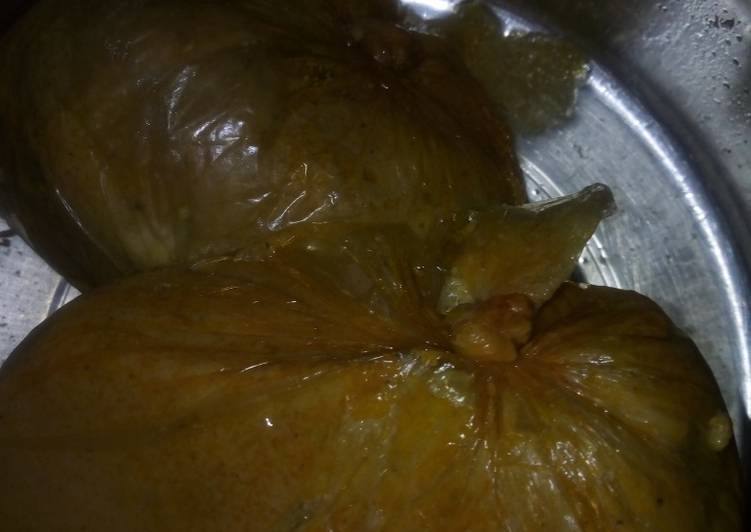Moi-moi. Moi Moi, also pronounced as Moin Moin, Moyin Moyin, Moy Moy or Mai Mai is a traditional Nigerian food made with steamed ground beans and enriched with spices. It is very common to see Moi Moi (Moin Moin) served at parties, wedding ceremonies and other festive occasions. Moi Moi (Moin Moin) is usually eaten alone as a meal , but most times it is served with other Nigerian foods such as Pap(Ogi.
 Moi Moi is usually eaten alone as a meal , but most times it is.
Moi Moi is a traditional Nigerian dish of steamed bean pudding made from a base of beans and peppers.
When the beans are soft, rub them together to take the skins off.
You can have Moi-moi using 6 ingredients and 4 steps. Here is how you achieve it.
Moi Moi is usually eaten alone as a meal , but most times it is.
Moi Moi is a traditional Nigerian dish of steamed bean pudding made from a base of beans and peppers.
When the beans are soft, rub them together to take the skins off.
You can have Moi-moi using 6 ingredients and 4 steps. Here is how you achieve it.
Ingredients of Moi-moi
- It's of Beans.
- You need of Pepper.
- It's of Ginger and garlic.
- It's of Maggi and salt.
- Prepare of Ground oil and red oil.
- You need of Spinach.
Drain the water and pour the skinned beans in a blender with water. Moi moi (beans pudding) is one of such Nigerian foods that are loved by every Nigerian. It is made of beans and some other local ingredients. The recipe for beans pudding is not as straight forward as the recipe for porridge beans or even jollof rice but with time and a little keenness, however, You will become great at it.
Moi-moi instructions
- Wash Your beans as shown below.
- Add the pepper,ginger and garlic.
- After grinding the beans add your spices Maggi and salt, and spinach.
- Mix the oil to gether and add.
Moi moi/ moin moin is the blended perfection of protein-rich black-eyed peas, red peppers, onions, and various garnishes of your choice. This steamed bean pudding is one of the main protein sources in West Africa, and there is nothing that won't pair beautifully with it. Moimoi or Moin-Moin is a Nigerian steamed bean pudding made from a mixture of washed and peeled black-eyed peas, onions and fresh ground red peppers (usually a combination of bell peppers and chili or Scotch bonnet). It is a protein-rich food that is a staple in Nigeria. In Ghana, it is commonly known as 'Alele' or "Olele'.